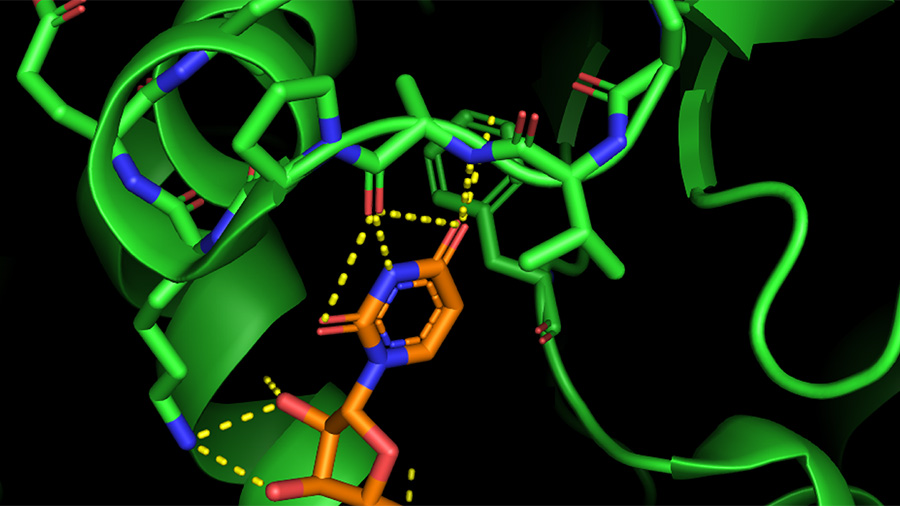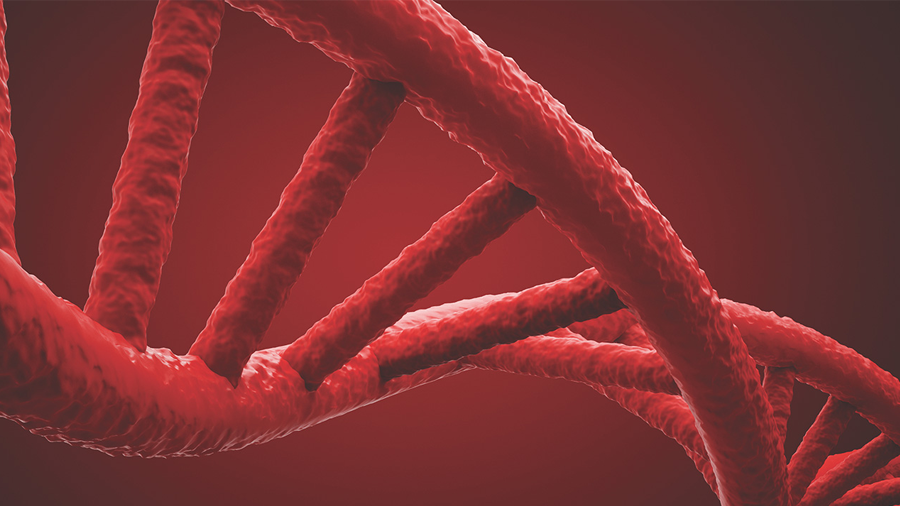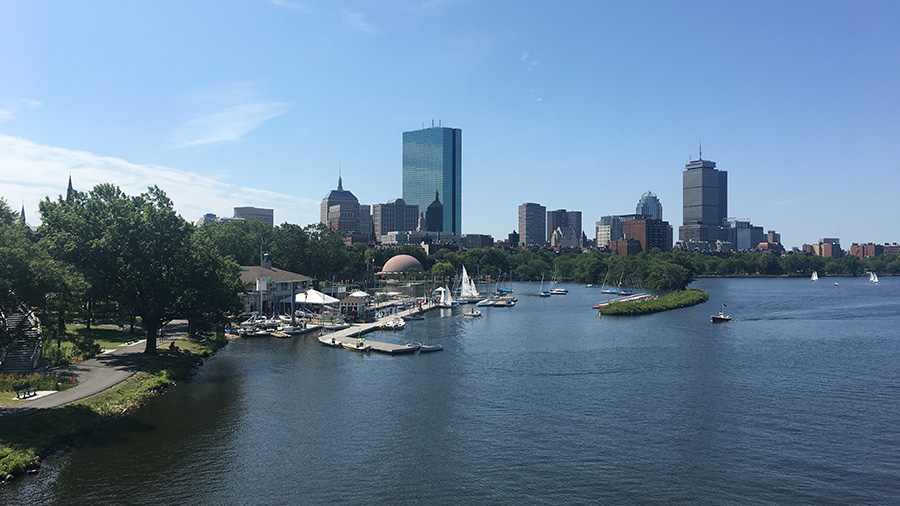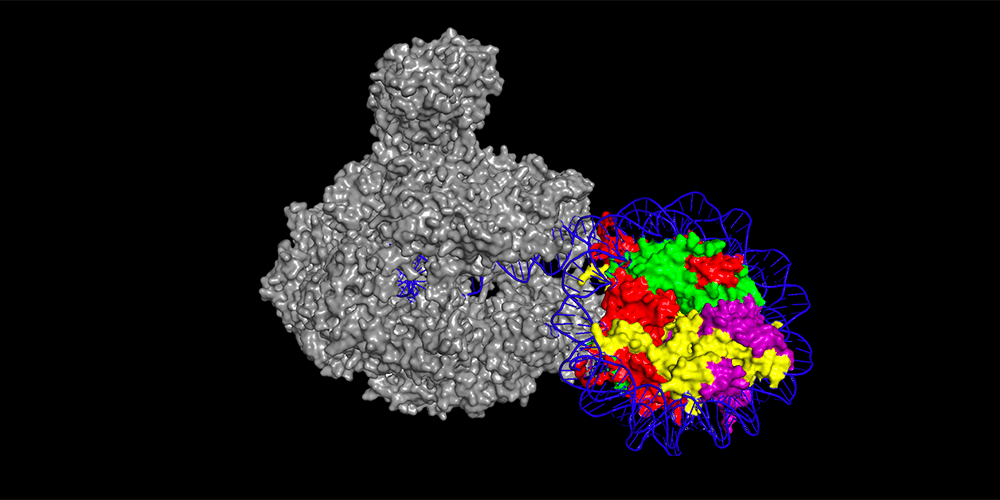Calendar of events, awards and opportunities
Every week, we update this list with new meetings, awards, scholarships and events to help you advance your career. If you’d like us to feature something that you’re offering to the bioscience community, email us with the subject line “For calendar.” ASBMB members’ offerings take priority, and we do not promote products/services. Learn how to advertise in ASBMB Today.
Feb. 1: ACS webinar "The inclusivity triangle"
The American Chemical Society is hosting a free webinar at 1 p.m. Feb. 1 titled "The inclusivity triangle: Approaching DEIR in chemistry through academia, industry and community." Here's how they describe it: "Advocating for greater diversity, equity, inclusion and respect (DEIR) creates more equitable opportunity for all, but does it make good business sense? Join a panel of diversity experts as they discuss how a culture of inclusion through culturally relevant teaching in academia, laboratory research in industry, and engagement within the society can be an engaging productive catalyst for the chemical workforce and beyond." Register.

Feb. 1: Registration deadline for the ASBMB Deuel Conference on Lipids
The ASBMB Deuel conference — to be held March 1–4 in Monterey, Calif. — is a must-attend event for leading lipids investigators.
“We'd love to bring in people who might not have cut their teeth in the lipid metabolism field but have found their way to studying lipids. In many cases, that's where you get the most exciting, unusual and off-the-wall presentations, and that can spark collaborations that may have otherwise not have happened,” co-organizer Russell DeBose–Boyd told ASBMB Today.
This year's theme is "Location, location, location: How lipid trafficking impacts cell signaling and metabolism." In an interview, co-organizer Arun Radhakrishnan explains it this way: “In recent years, we have begun to gain deep insights into the mechanisms of lipid trafficking. We thought it would be great to have a meeting focusing on that aspect and what those what these new insights are telling us about cell signaling and metabolism.”
Regular registration ends Feb. 1. See the program.
Feb. 2–3: FASEB Catalyst Conference on soil and water
This free conference is a two half-day program in FASEB’s Catalyst Conference series, to be co-hosted by FASEB and American Geophysical Union–GeoHealth. The overarching focus will be on the current geoscience, biological and biomedical research in soil and water quality and influences on the health of humans, animals, ecosystems, and the environment. See the program and register.
Feb. 3: Growth factor signaling pathway regulation of skeletal growth and adult bone homeostasis
The American Association of for Anatomy is hosting a free webinar on Feb. 3 that will feature speaker David Ornitz of Washington University School of Medicine in St. Louis. His lab studies mesodermal and epithelial patterning, organogenesis, tissue homeostasis and response to injury. Learn more.

Important #ASBMB2022 dates
The ASBMB annual meeting will be held in person in Philadelphia in April. We're looking forward to seeing you!
- Feb. 7: Early registration (largest discount) ends
- Feb. 8: Advance registration (smaller but still significant discount) begins
- March 18: Advance registration ends
- March 19: Regular registration begins
Feb. 9: Lasker essay contest time
The Lasker Foundation will begin accepting essays for its annual contest Feb. 9. The contest is open to medical school students, interns, residents and fellows; doctoral students and postdoctoral fellows in biomedical sciences; and graduate students in public health or other health professions programs. Winners will receive up to $5,000. Monetary prizes will be directed to the winners' institutions to be used toward the winners' educational expenses. The topic will be announced in early February, and winners will be announced in early July. Learn more.

Feb. 12: Creating an inclusive learning environment
Submit your abstract by Feb. 1 to present your work at this ASBMB Catalyst Conversations workshop about creating an inclusive learning environment. ASBMB Catalyst Conversations are informal events at which educators share their still-in-development teaching practices and classroom activities. Presenters of short “chalk talks” get immediate feedback. Not ready to share? Then come for the keynote talk on uncertainty and change, support colleagues presenting their work, and engage in conversations during thematic networking sessions. This virtual event is free. Submit an abstract and/or register.
Feb. 15: RNA summer internship program in Colorado
The University of Colorado Anschutz Medical Campus is advertising its RNA Bioscience Initiative Summer Internship Program. This 10-week internship runs from June to August and offers a $4,000 stipend, roundtrip travel expenses and housing. Half of the participants are selected from applicants affiliated with the Society for the Advancement of Chicanos/Hispanics and Native Americans in Science. The application deadline is Feb. 15. Learn more.
Feb. 16: Webinar on best practice for clinical relevance
The American Physiological Society, ADInstruments and InsideScientific are hosting a one-hour translational science panel discussion featuring three international researchers. It will include presentations and live Q&A that address topics for researchers who want to progress their preclinical research models into the translational and clinical sectors. Learn more.

Feb. 17: Unconscious bias webinar by the ASBMB
The ASBMB is committed to promoting a diverse, equitable and inclusive culture in biochemistry and molecular biology. Timely conversations centering subjects such as unconscious bias are critical to our collective DEI efforts. Recognition of one's own unintentional bias is as essential as understanding the negative impact and harm of bias. The ASBMB Women in Biochemistry and Molecular Biology Committee and Minority Affairs Committee will host an unconscious bias webinar at 2:30 p.m. Eastern on Feb. 17. It will be led by Darin Latimore, deputy dean and chief diversity officer at the Yale School of Medicine. Latimore’s presentation will take place during the first hour, followed by a panel discussion and questions from the audience. Come learn about unconscious bias and share strategies to combat it!
Feb. 23–24: Virtual forum on cohort recruitment by NIH
The National Institutes of Health is hosting a two-day virtual forum on the agency's faculty cohort recruitment programs and the science behind their effectiveness. Here's how they describe the event, which is open to all: "(We) will explore faculty cohort recruitment adoption and dissemination. Discussions will include the impact of cohort recruitment on diversity, equity, inclusion and accessibility; practices that make cohort recruitment successful; potential barriers to success; and how to evaluate both implementation and outcomes." Learn more.
March 8–10: 10th International Singapore Lipid Symposium
iSLS 10 will be held in person and online in March. This year's themes are: precision health and medicine, nutritional science, healthy longevity, cariometabolic diseases, infection biology and the microbiome. Learn more about the keynote lectures, networking opportunities and workshops. Fees: $150 for students and postdocs and $250 for others. ASBMB member Markus Wenk at National University of Singapore is organizing the meeting.
March 31: Apply to host symposium for grad students and postdocs
The Federation of European Biochemical Societies and its partners are looking for institutions to host the FEBS-IUBMB-ENABLE Symposium in 2024 for graduate students and postdocs. Institutions interested in hosting have until March 31 to apply. Note that these symposia are to be organized by the students/postdocs. Learn more.

April 26: Abstract deadline for ASBMB's O-GlcNAc meeting
This conference, to be held in person in Athens, Ga., will address the multitude of roles that the O-GlcNAc protein modification has in regulating nuclear and cytosolic proteins. It will bring together researchers from diverse fields to share their research, tools and experience in O-GlcNAc biology. The organizers are Gerald Hart and Lance Wells, both of the University of Georgia. Learn more.

May 17–20: Save the date for our ESCRT biology meeting
This in-person meeting will be held in Madison, Wisconsin. It'll be a unique, open, inclusive and interactive forum for the international and domestic research community working on ESCRT biology and be an effective learning environment for all participants, especially graduate students, postdocs and other researchers from diverse backgrounds. This meeting will bring together experts in disciplines as diverse as biophysics, plant biology, cell biology, biochemistry and structural biology from around the world to cover key aspects of ESCRT biology. Stay tuned for abstract and registration deadlines.

July 21–24: Evolution and core processes in gene expression
Coming to an in-person venue in the summer of 2022: The focus of this meeting is to discuss the most recent insights into the cis-regulatory code, how cis-regulatory information is read out by transcription factors, signaling pathways and other proteins, how cellular diversity is created during development and how we can study this problem using cutting-edge genomics technology and computational methods.
The meeting will simultaneously examine the problem from an evolutionary perspective: how cis-regulatory elements evolve, how regulatory variation affects gene expression and phenotypes, how these changes have shaped development and parallel evolution, and how noise affects regulatory circuits and their evolution.

Aug. 14–18: Mass spectrometry in the health and life sciences
This five-day conference will be an international forum for discussion of the remarkable advances in cell and human protein biology revealed by ever-more-innovative and powerful mass spectrometric technologies. The conference will juxtapose sessions about methodological advances with sessions about the roles those advances play in solving problems and seizing opportunities to understand the composition, dynamics and function of cellular machinery in numerous biological contexts. In addition to celebrating these successes, we also intend to articulate urgent, unmet needs and unsolved problems that will drive the field in the future. Registration and abstract submission begins Nov. 1. Abstracts are due May 16. Learn more.

Sept. 28–Oct. 2: Epigenetic regulation and genome stability
Save the date! Most meetings on epigenetics and chromatin focus on transcription, while most meetings on genome integrity include little attention to epigenetics and chromatin. This conference in Seattle will bridge this gap to link researchers who are interested in epigenetic regulations and chromatin with those who are interested in genome integrity. Stay tuned for abstract and registration deadlines.

Sept. 29–Oct. 2: Chromatin and RNA polymerase II
Save the date for this in-person meeting in Snowbird, Utah! Sessions will cover recent advances and new technologies in RNA polymerase II regulation, including the contributions of non-coding RNAs, enhancers and promoters, chromatin structure and post-translational modifications, molecular condensates, and other factors that regulate gene expression. Patrick Cramer of the Max Planck Institute will present the keynote address on the structure and function of transcription regulatory complexes. Stay tuned for abstract and registration deadlines.

Call for virtual scientific event proposals
The ASBMB provides members with a virtual platform to share scientific research and accomplishments and to discuss emerging topics and technologies with the BMB community.
The ASBMB will manage the technical aspects, market the event to tens of thousands of contacts and present the digital event live to a remote audience. Additional tools such as polling, Q&A, breakout rooms and post event Twitter chats may be used to facilitate maximum engagement.
Seminars are typically one to two hours long. A workshop or conference might be longer and even span several days.
Prospective organizers may submit proposals at any time. Decisions are usually made within four to six weeks.
Enjoy reading ASBMB Today?
Become a member to receive the print edition four times a year and the digital edition monthly.
Learn moreFeatured jobs
from the ASBMB career center
Get the latest from ASBMB Today
Enter your email address, and we’ll send you a weekly email with recent articles, interviews and more.
Latest in Careers
Careers highlights or most popular articles

Embrace your neurodivergence and flourish in college
This guide offers practical advice on setting yourself up for success — learn how to leverage campus resources, work with professors and embrace your strengths.

Upcoming opportunities
Apply for the ASBMB Interactive Mentoring Activities for Grantsmanship Enhancement grant writing workshop by April 15.

Quieting the static: Building inclusive STEM classrooms
Christin Monroe, an assistant professor of chemistry at Landmark College, offers practical tips to help educators make their classrooms more accessible to neurodivergent scientists.

Unraveling oncogenesis: What makes cancer tick?
Learn about the ASBMB 2025 symposium on oncogenic hubs: chromatin regulatory and transcriptional complexes in cancer.

Exploring lipid metabolism: A journey through time and innovation
Recent lipid metabolism research has unveiled critical insights into lipid–protein interactions, offering potential therapeutic targets for metabolic and neurodegenerative diseases. Check out the latest in lipid science at the ASBMB annual meeting.

Hidden strengths of an autistic scientist
Navigating the world of scientific research as an autistic scientist comes with unique challenges —microaggressions, communication hurdles and the constant pressure to conform to social norms, postbaccalaureate student Taylor Stolberg writes.
